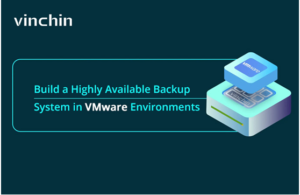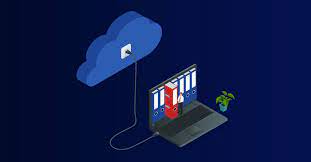Why Disaster Recovery Matters to Enterprise Data

When should you assess your company’s data and information backup procedures? Now is the moment to find out. Cyber attacks on businesses are getting more widespread and sophisticated, and the epidemic’s global work-from-home shift has further exacerbated the problem.
So, how do you pick amongst all of the backup possibilities? We’ll go over four important elements to consider when selecting the right solution in this article: flexibility, automation, cost, and ease of use.
The Importance of Backing-Up
A cloud-based backup system, for example, provides data accessibility and scalability, as well as speedier disaster recovery and lower costs than traditional backup options. On-site storage is also cost-effective and enables for offline access; however, your technical team may be responsible for ongoing maintenance. As a result, many businesses opt for a hybrid solution that combines cloud backup with an on-premise backup system. There’s a lot to think about, but we’re here to help! We propose that you start with the four components outlined below as you evaluate your options.
3 Considerations for Choosing a Backup Solution
1) Flexibility
The first thing to think about when choosing a enterprise cloud backup solutions is yourself. Whatever solution you select must be compatible with the rest of your IT infrastructure. Because you want to grow and scale your business, any solution you choose should be capable of supporting a broader ecosystem than the one you’re currently utilizing.
While you can set up your own backup system, working with a professional is more cost-effective and efficient for many SMBs. While you can build your own backup system, many small and medium-sized businesses (SMBs) find that working with a third-party professional is more cost-effective and efficient. Vinchin offers a number of backup and recovery service levels to match your unique needs, including:
- Basic Backup: For enterprises in need of a data backup solution. Backup Basic comes with everything you’ll need to protect your data and get back online quickly after a power loss. Backups will be incremental, deduplication will be performed, and encryption will be implemented.
- Backup Pro: For a comprehensively planned and tested virtual disaster recovery solution. Backup Pro allows you to manage all of your protected systems in one place.
- Recovery and Replication in the Event of a Disaster:
For businesses that demand quick recovery, a cloud-based, high-availability solution is ideal. Protected data is copied to our cloud environment near-synchronously, allowing you to fail over to the cloud and then back to your own system rapidly.
2) Automation
Look for backup solutions that automate manual operations, reducing the time-consuming tasks connected with backups and ensuring that backups are completed at least once a day. Your backup system may integrate artificial intelligence, or AI. By automating chores, you’ll free up time for your team to work on other projects or significant advancements.
3) Consolidation
Last but not least, consider how simple it is to use. Avoid a solution that necessitates a large number of different commodities, as this will result in silos, wasted space, and overcomplication. Instead of using multiple solutions, search for a solution that combines data backup and storage into a single platform. This can save money on infrastructure and simplify things for your IT team and the rest of the company. A VMware backup solution will boost your ability to restore data quickly if you lose it. While you should consider all of your alternatives, in the end, we recommend settling with a simple yet effective backup solution.

Vinchin is a respected provider of commercial data security solutions. For private, public, and hybrid cloud systems, it provides data backup, quick recovery, and offsite disaster recovery solutions. It supports virtual environments such as VMware, XenServer/XCP-ng, Hyper-V, RHV/oVirt, OpenStack, Sangfor HCI, Oracle Linux Virtualization Manager, and Huawei FusionCompute (Xen Based). It protects critical company data against a variety of threats, including human error, viruses, attacks, hardware failures, natural catastrophes, and wars.





